Concawe Reports
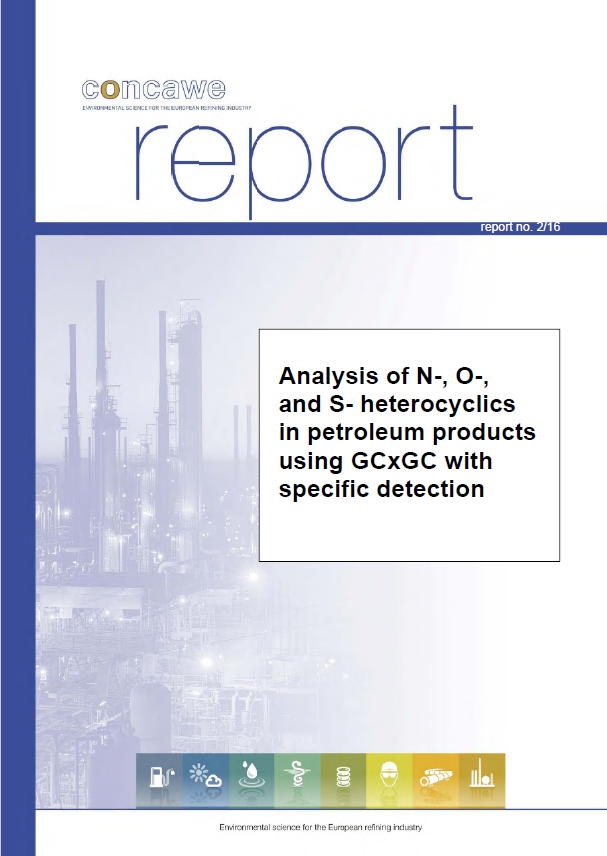
Reports
Analysis of N-, O-, and S- heterocyclics in petroleum products using GCxGC with specific detection
Report no. 2/16: REACH dossiers on all p etroleum productcategories were compiled and submitted by Concawe in 2010. ECHA subsequently raised co ncerns regarding the tech nical justification of the ass...
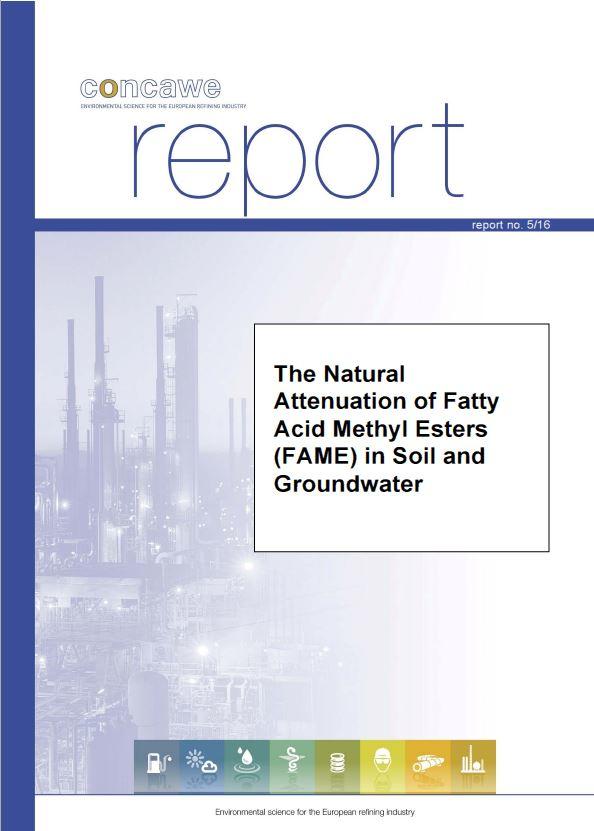
Reports
The Natural Attenuation of Fatty Acid Methyl Esters in Soil and Groundwater (report no. 5/16)
Report no. 5/16: With the increasing use of fatty acid methyl esters (FAME) in automotive fuels there is growing interest in the fate and effects of biodiesel, and biodiesel/ petroleum distillate blen...
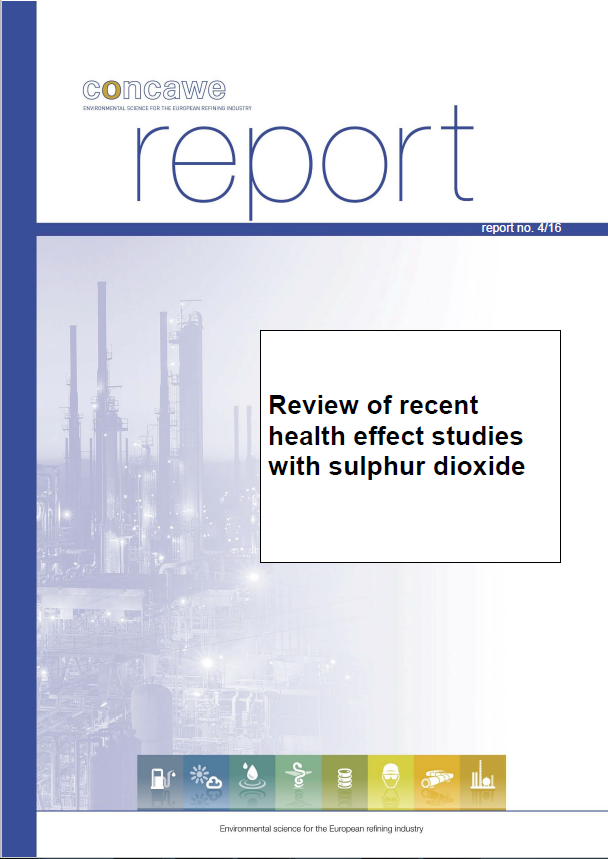
Reports
Review of recent health effect studies with sulphur dioxide
Report no. 4/16: This report focuses on published toxicology and epidemiology studies that have examined the relationship between sulphur dioxide exposures and the occurrence of acute and chronic heal...
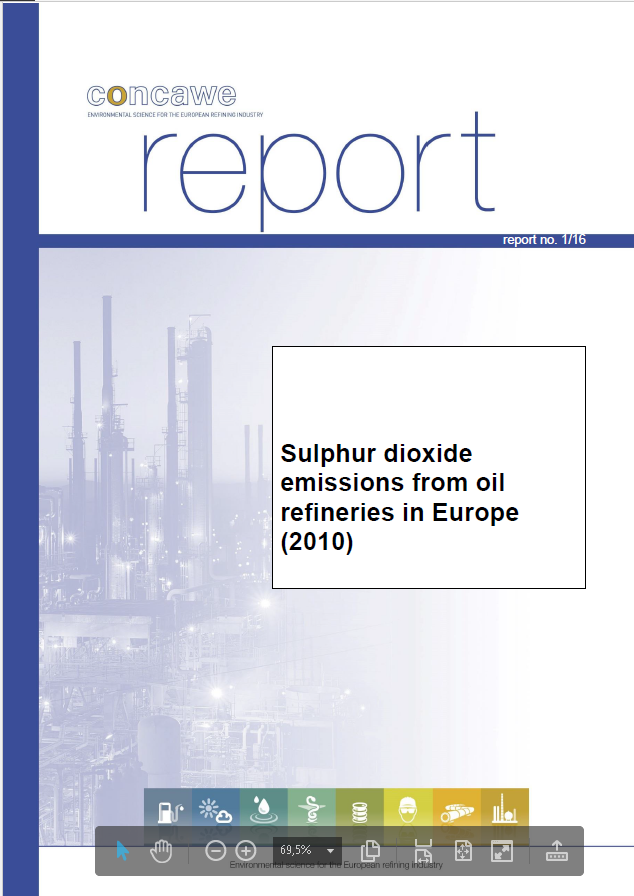
Reports
Sulphur dioxide emissions from oil refineries in Europe (2010)
Report no. 1/16: This report describes the results of the 2010 year survey into the sulphur pathways in European refining. This includes the distribution of sulphur in products, the capture and recove...
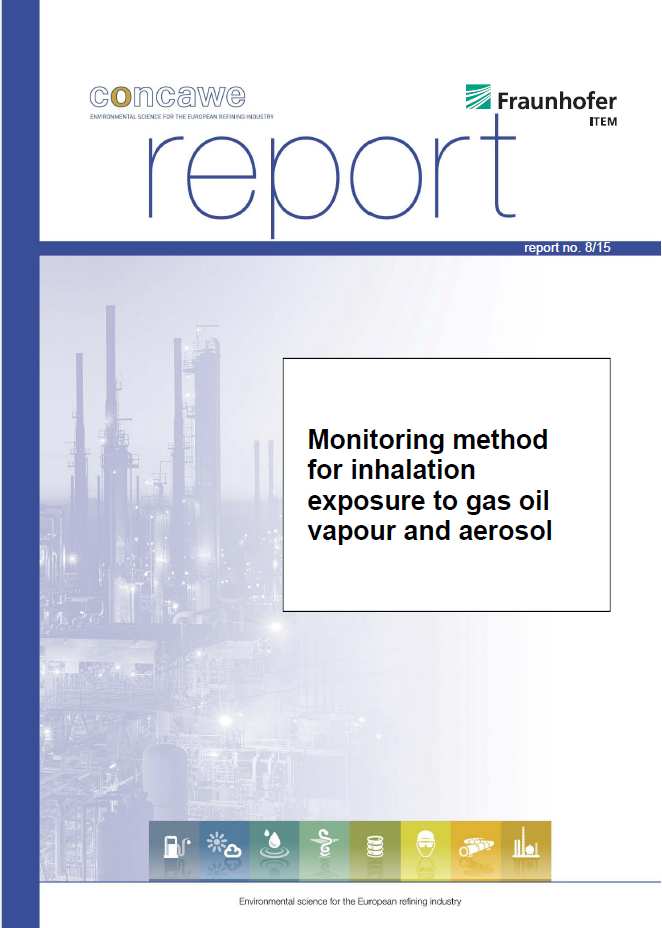
Reports
Monitoring method for inhalation exposure to gas oil vapour and aerosol
Report no. 8/15: A study was conducted to characterize sampling and analysis methods for the measurement of the personal workplace exposure concentration of gas oil vapours and aerosols and in particu...
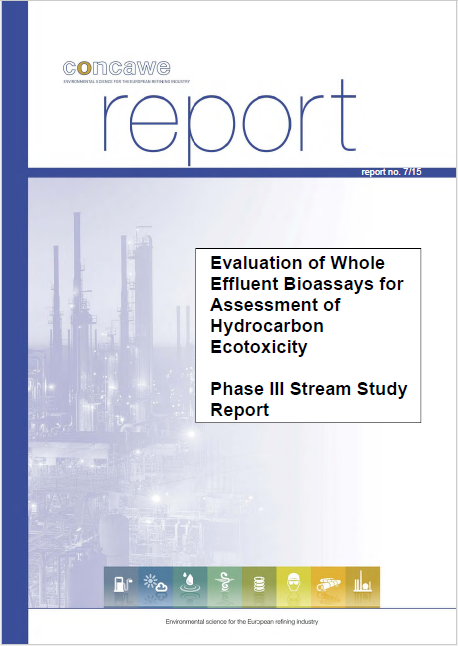
Reports
Evaluation of Whole Effluent Bioassays for Assessment of Hydrocarbon Ecotoxicity – Phase III Stream Study
Report no. 7/15: Toxicity predictions based on laboratory- based Whole Effluent Toxicity (WET) tests have been assessed by dosing outdoor stream mesocosms with unmodified and fortified refinery efflue...

Reports
Techniques for detecting and quantifying fugitive emissions – results of comparative field studies
Report no. 6/15: Sniffing and Optical Gas Imaging (OGI) methods for the detection of refinery fugitive VOC emissions were compared under field conditions. Both of these methods are described as Best A...

Reports
Statistical summary of reported incidents – 2014
Report no. 5/15: In this twenty-first annual report on European downstream oil industry safety performance, 2014 statistics are presented on work-related personal injuries for the industry’s own emp...
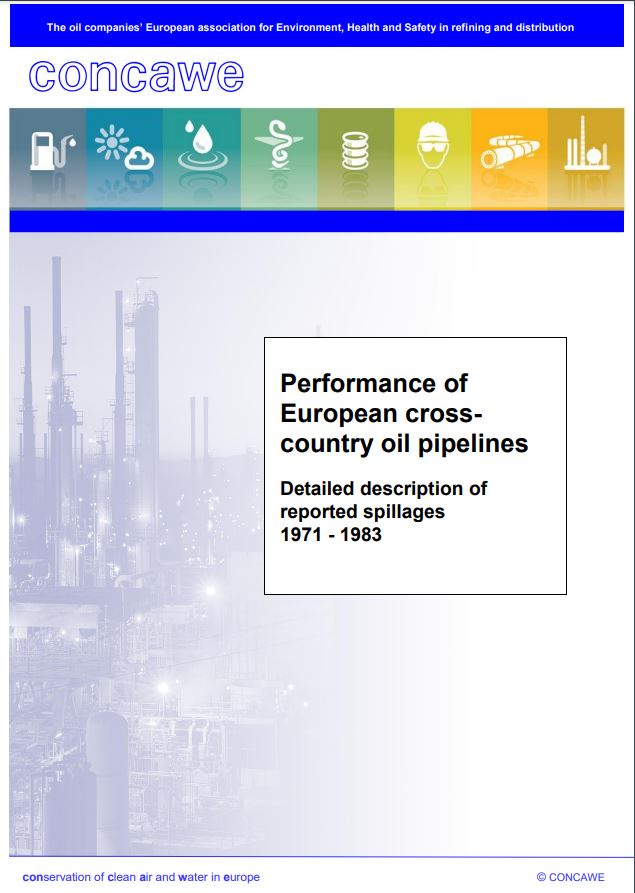
Reports
Performance of European cross-country oil pipelines (1971-1983)
Detailed description of reported spillages 1971-1983. Twenty-one spillages were reported during 1972 and these are itemised in detail in Appendix I, and further tabulated in categories and volumetric...
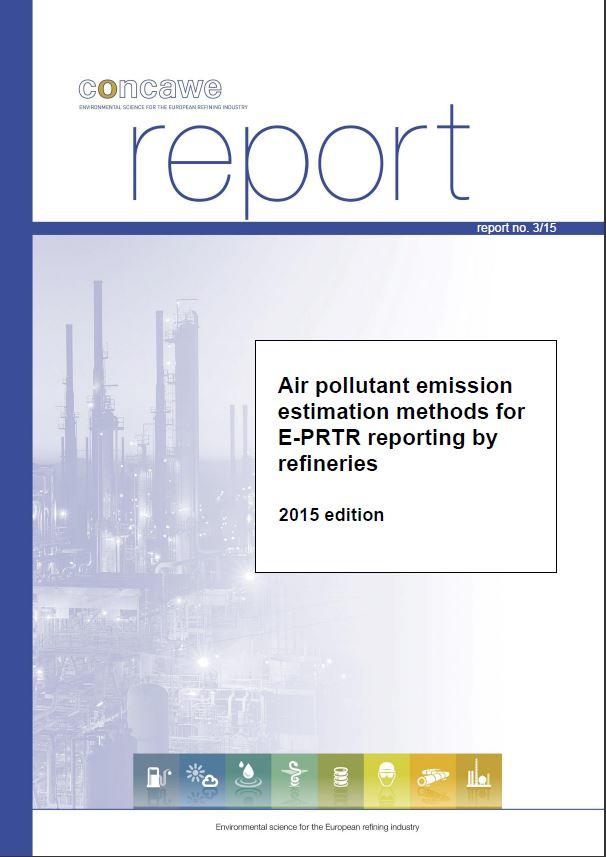
Reports
Air pollutant emission estimation methods for E-PRTR reporting by refineries
Report no. 3/15: This report is an update of the Concawe publication “Air Pollutant Emission Estimation Methods for EPER and PRTR Reporting by Refineries”.
It provides algorithms to permit emi...
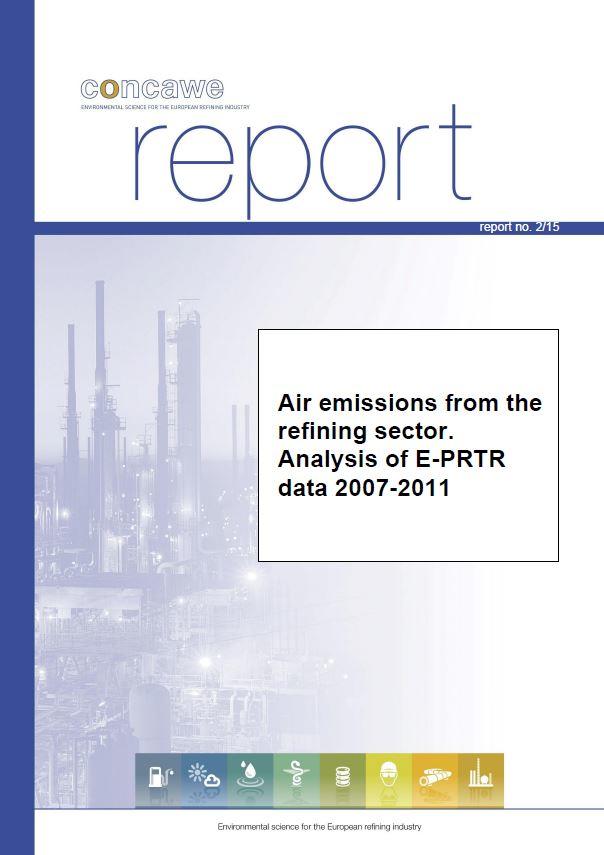
Reports
Air emissions from the refining sector. Analysis of E-PRTR data 2007-2011
Report no. 2/15: This report provides a review of the air pollutant emissions data submitted by national authorities for oil refineries in the E-PRTR from 2007 to 2011.
Detailed analyses are given...
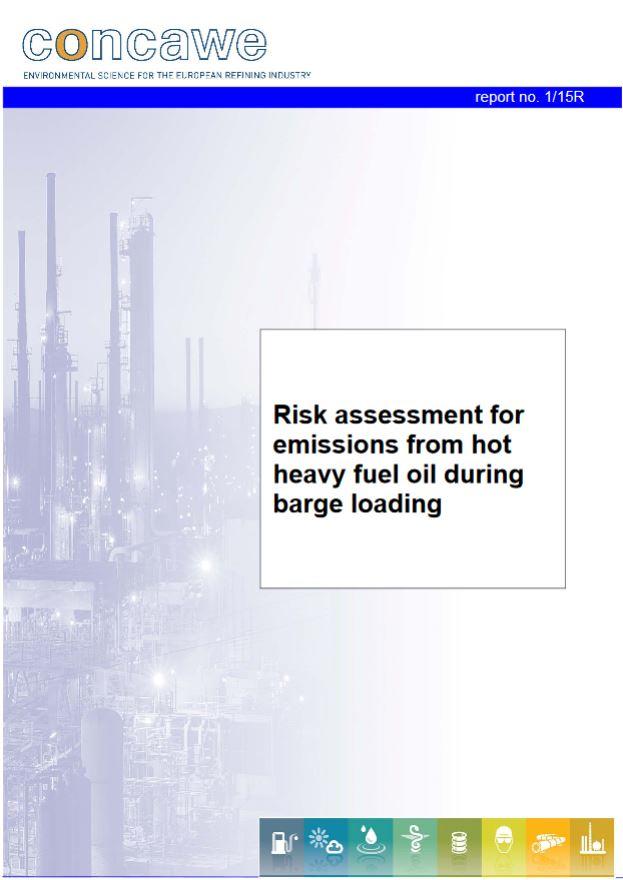
Reports
Risk assessment for emissions from hot heavy fuel oil during barge loading
Report no. 1/15R: A series of emissions, occupational exposures, and mutagenic hazard studies were conducted to assess the risk associated with the loading of commercial Heavy Fuel Oils onto barges on...
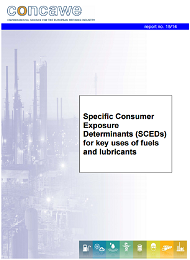
Reports
Specific Consumer Exposure Determinants (SCEDs) for key uses of fuels and lubricants
Report no. 15/14: Under the REACH regulation, registrants are required to demonstrate the absence of significant risk when consumers are exposed to their registered substances. To do this, the Europea...
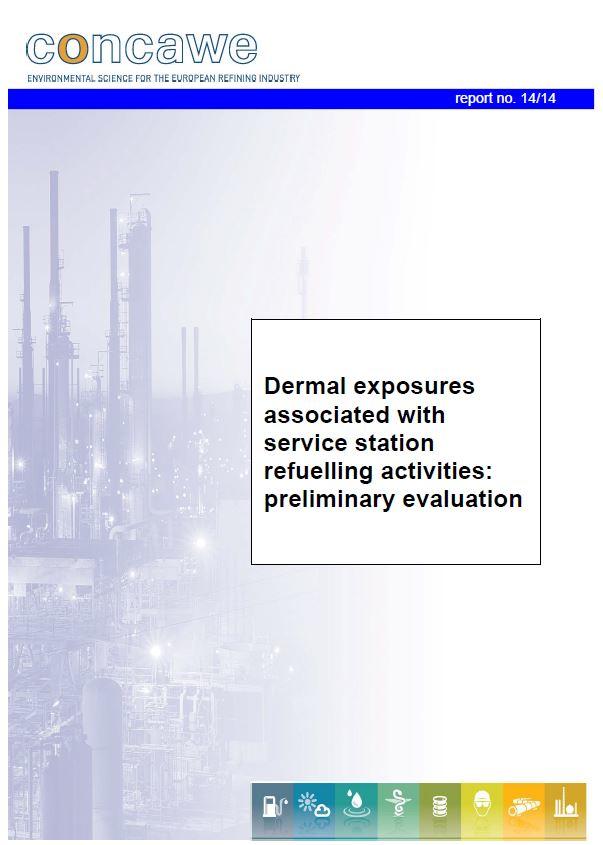
Reports
Dermal exposures associated with service station refuelling activities: preliminary evaluation
Report no. 14/14: This study investigates dermal exposure to petrol and diesel fuel in service station attendants responsible for the refuelling of automobiles. In phase 1 of the study, six attendants...
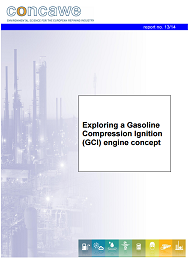
Reports
Exploring a Gasoline Compression Ignition (GCI) engine concept
Report no. 13/14: This report describes initial engineering and experimental steps to assess the potential to improve efficiency and reduce both regulated and CO2 emissions, and maintain acceptable no...
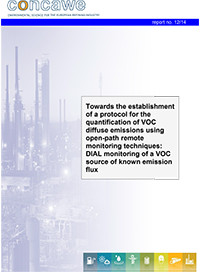
Reports
Towards the establishment of a protocol for the quantification of VOC diffuse emissions using open-path remote monitoring techniques: DIAL monitoring of a VOC source of known emission flux
Report no. 12/14: This report provides the results of a programme of work undertaken to compare the controlled rate of release of propane from a simulated floating roof tank with the flux determined u...
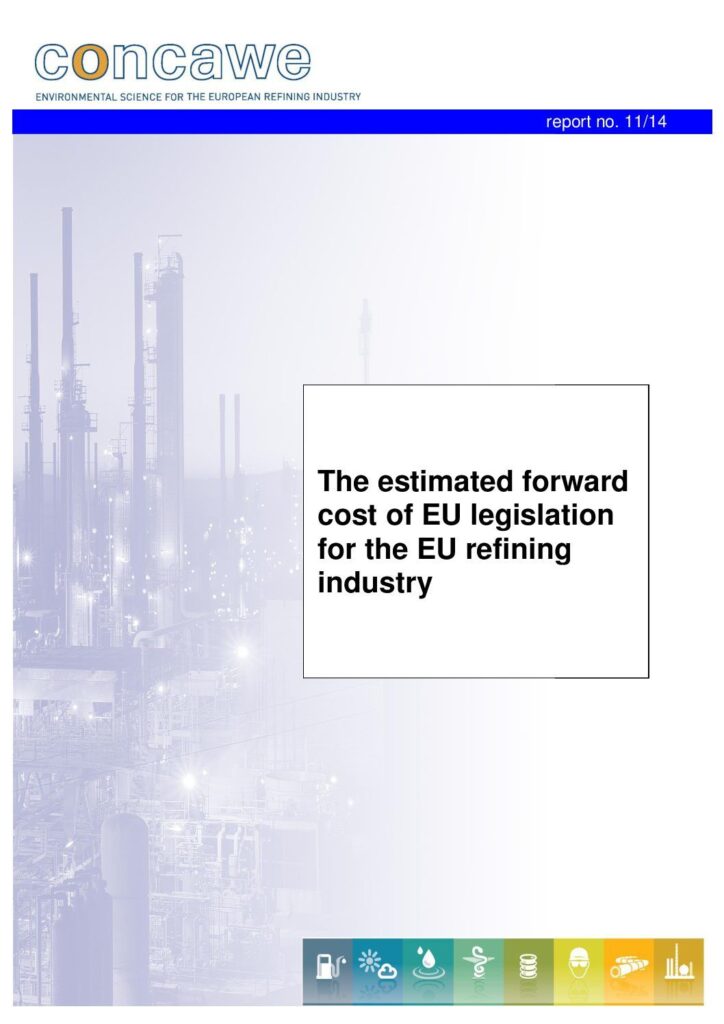
Reports
The estimated forward cost of EU legislation for the EU refining industry
Report no. 11/14: This Concawe report provides an estimation of the cost burden imposed on EU refineries over the period from 2010 to 2020 by a number of EU legislative and implementing acts.
It is...
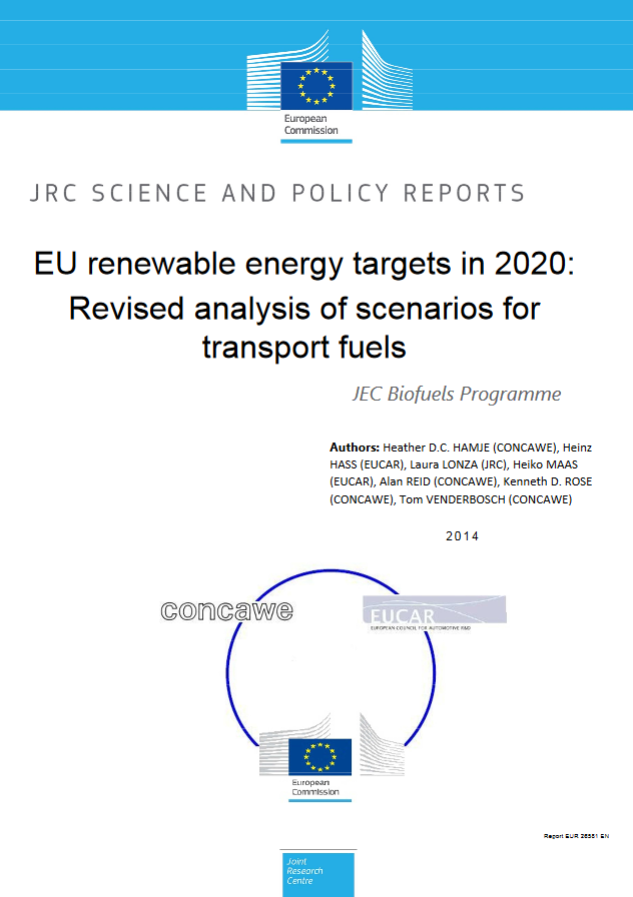
Reports
JEC Biofuels Study: 2014 Update
This report is the result of the JEC Biofuels Programme, a joint study carried out by JRC (the Joint Research Centre of the European Commission), EUCAR (the European Council for Automotive R&D) an...
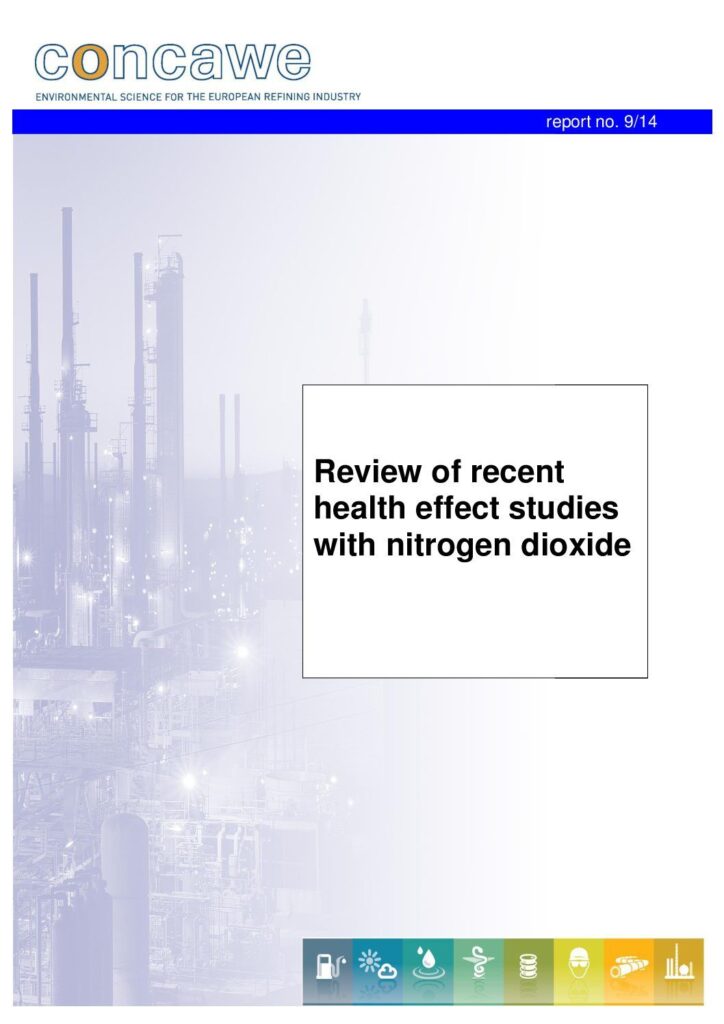
Reports
Review of recent health effect studies with nitrogen dioxide
Report no. 9/14: This report focuses on published studies that have examined the epidemiologic associations of ambient air exposures to nitrogen dioxide and the occurrence of acute and chronic health...
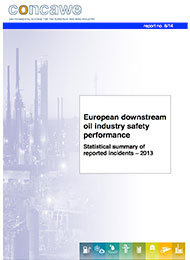
Reports
European downstream oil industry safety performance Statistical summary of reported incidents – 2013
Report no. 8/14: In this twentieth annual report on European downstream oil industry safety performance, 2013 statistics are presented on work-related personal injuries for the industry’s own employ...
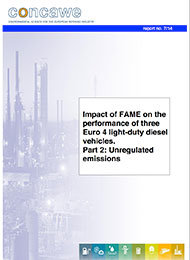
Reports
Impact of FAME on the performance of three Euro 4 light-duty diesel vehicles – Part 2: Unregulated emissions
Report no. 7/14: In 2009, EU legislation mandated that 10% renewable energy must be used in road transportation by 2020, primarily through the use of bio-blending components. Fordiesel fuel blending,...
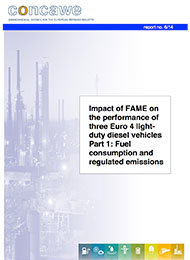
Reports
Impact of FAME on the performance of three Euro 4 light-duty diesel vehicles – Part 1: Fuel consumption and regulated emissions
Report no. 6/14: By 2020, EU legislation will require that 10% of the total transport fuel energy demand is met by the use of renewable energy, primarily by blending bio-components. Although many type...
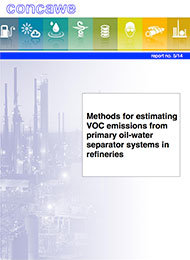
Reports
Methods for estimating VOC emissions from primary oil-water separator systems in refineries
Report no. 5/14: This report reviews the different methods available to estimate annual Volatile Organic Compound (VOC) emissions from primary oil-water separator systems in refineries and discusses t...
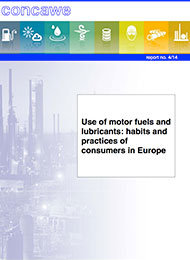
Reports
Use of motor fuels and lubricants: habits and practices of consumers in Europe
Report no. 4/14: A structured survey of European consumers was carried out across 250 participants to better understand their habits and practices concerning their use of vehicle fuels and lubricants....